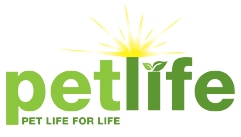Here are some basic principles and guidelines to keep in mind when preparing a healthy diet for your dog or cat:
For cats
- Caloric Intake
An average adult 10-pound cat should eat about 275 calories a day. Ill or injured cats may need more.

- Meals Per Day
Natural feeding cycle in the wild includes 12-20 small meals a day, but for domestic cats 2-3 meals a day is adequate.
- Nutritional Balance
Avoid vegetarian only diets, as they can lead to nutrient deficiencies. Adding Fiber and other key supplements into your cat’s diet regimen may be highly useful and is recommended.
- “Finicky” Factor
Cats are indeed more finicky about their food, and taste and texture are important. New food should be gradually mixed with familiar food. Owners should always ensure that their cat's preferred foods contain enough essential nutrients.
- Weight Risk
Obesity in cats is a common problem. You should keep in mind the Pet Obesity equation (Too Many Calories + Wrong Type of Nutrition = Pet Obesity) and strive to provide your cat a balanced diet with additional nutrients as needed, plus an appropriate amount of exercise and activity.
- Canned vs. Dry
Can foods are better for cats that are trying to lose weight because they contain more protein and less carbohydrates than dry foods.
For dogs
- Nutritional Balance
Vegetarian diets are fine for some dogs, but bear in mind that normal adult dogs need about 10 percent of calories from protein. There are benefits to providing your dog some fiber and additional nutrients into their diet as well.

- Meals Per Day
Dogs often eat less than cats, but consume larger meals. Adult dogs can be fed 1 to 2 times daily; puppies need 2 to 3 daily meals.
- Importance of Fresh Water
Fresh water should be available at all times, especially during exercise.
- Weight Risk
As in cats, obesity in dogs is also a common problem. You should keep in mind the Pet Obesity equation (Too Many Calories + Wrong Type of Nutrition = Pet Obesity) and strive to provide your dog a balanced diet with additional nutrients as needed, plus an appropriate amount of exercise and activity.
A practical, commonsense dietary approach using the basic guidelines above will help ensure a life time of health and happiness for your dog or cat. Before making any changes concerning your pet’s health or embarking upon a dietary regimen of any kind, please consult your veterinarian.
<< Back to Pet Health Articles
* These statements have not been evaluated by
the Food and Drug Administration. This information is not intended to
diagnose, treat, cure, or prevent any disease.



